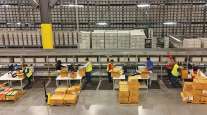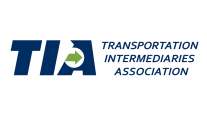Shippers, 3PLs Tout Technology as Key to Better Performance

LAS VEGAS — Technology can save shippers, carriers and third-party logistics companies money and time and improve the relationship between the three critical cogs in the supply chain, according to a panel at the 2017 Transportation Intermediaries Association conference.
Bob Biesterfield, president of North America surface transportation at C.H. Robinson, told the audience that when he began at the freight brokerage giant in 1999 technology referred to filing cabinets and better ways to organize paperwork. But now shippers, 3PLs and carriers are making strides to reduce unnecessary phone calls, faxes and e-mails and replace them with automated processes.
“The expectation is around efficiency: efficiency in communication, efficiency in problem resolution, efficiency in billing, efficiency in back office function. All of them are components of where we are focused as an organization," Biesterfield said. "[One, it helps us] to serve customers more effectively and efficiently. Two, simply the competitive landscape as it is today, I think everyone is looking for ways to manager internal costs so that we can be more competitive and deliver a higher level of service to our clients."
Ben Schuchart, vice president of brokerage at Schneider, added that technology makes it easier for 3PLs to develop larger networks of carriers with the necessary insurance and visibility to meet the needs of shippers. He added that technology allows Schneider to offer more service, better service and to say 'yes' to shippers more often.
"With all this data going around, carriers are being smarter about what is a good lane and not a good lane. They're running tighter networks, they have to run tighter networks. So they're finding more freight that just doesn't work for their network. That's a good spot for a 3PL to come in and say 'yes' more often, have more modes and solutions," Schuchart said.
Scott Joseph, managing director of Reserve Management Group, added that good 3PLs can offer multiple modes of transportation — pricing out loads on dry van, flatbed, refrigerated and intermodal to offer the best solution to the shipper. He also said that technology also means that it's more important than ever for 3PLs and carriers to be honest with shippers when events cause delays that'll impact the delivery schedule.
Reserve Management Group is a medium-sized shipper specializing in recycling.
"If a truck is broke down, or something else is wrong, let us know," he said. "Trucks break down every day. It helps us adjust our system. With all this automated software, we can dial things back and fit things in. ... As the technology comes online, people need to realize that they can say there is a problem."
There also was a discussion of Uber and Amazon entering the transportation and logistics space. The panel agreed that the two technological giants with a lot of available capital will push the technology-driven freight brokerage industry forward. But Biesterfield wasn't worried about Uber having the same disruption on trucking as it did on the taxicab industry.
"What Uber did in the taxi industry is they disrupted a regulated industry. Our industry has been deregulated for 37 years now," he said. "What Uber also did was that they brought capacity to the marketplace. My aunt, my sister, their minivans are new capacity in our marketplace. That's probably not going to happen in trucking. Because of a new app, you're probably not go out and spend $150,000 on a new truck and enter the industry."
He said Amazon and Uber will be strong new competitors, but similar to Wal-Mart, which bought many trucks when it grew, it won't cannibalize the trucking industry as a whole.
Schneider ranks No. 7 on the Transport Topics Top 100 list of the largest for-hire carriers in the United States and Canada. C.H. Robinson Worldwide ranks No. 5 on the Transport Topics Top 50 list of the largest logistics companies in North America.




